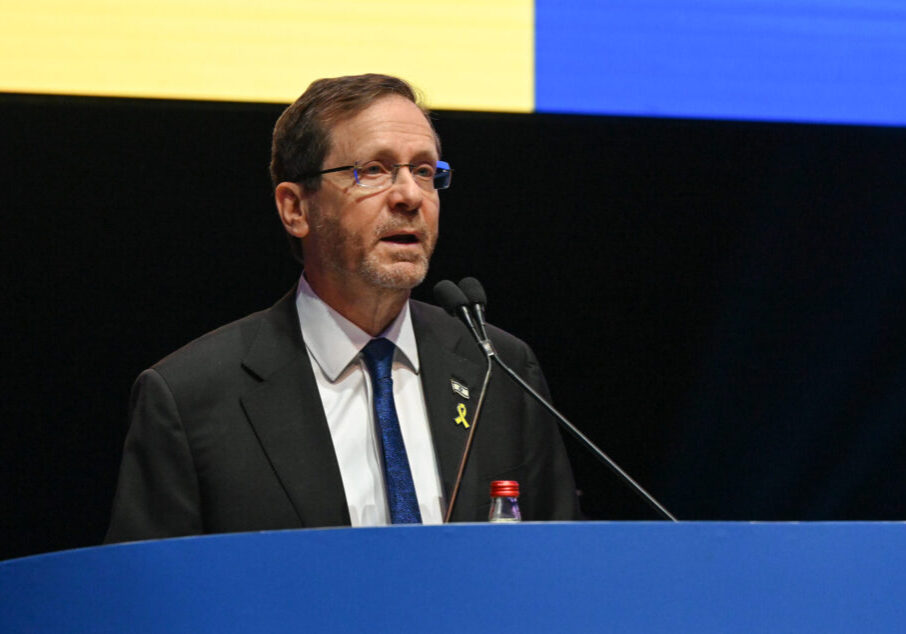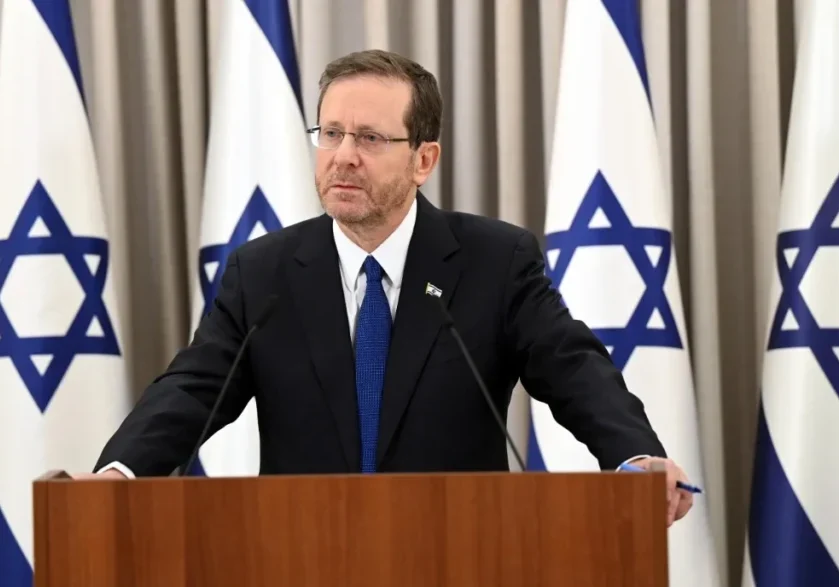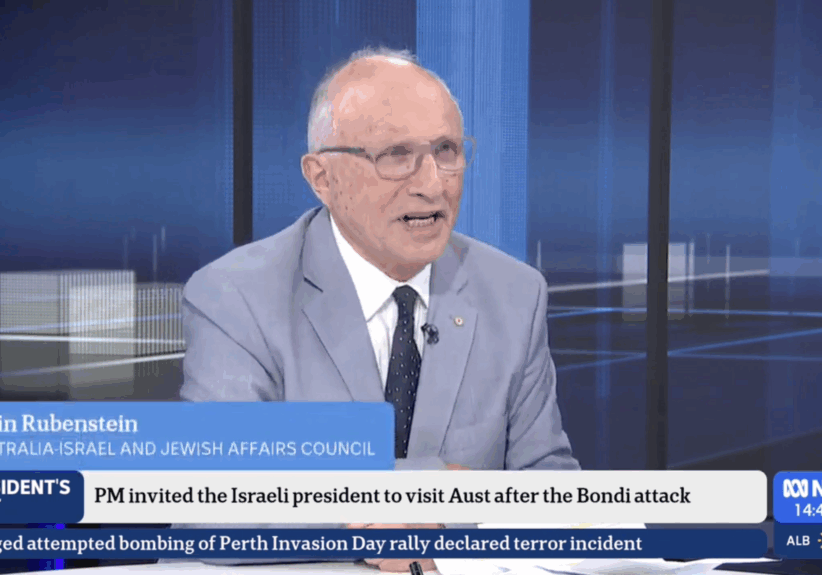Australia/Israel Review
Lessons Learned
Feb 1, 2007 | Anshel Pfeffer
By Anshel Pfeffer
What’s the job definition of an IDF Chief of General Staff? Until Dan Halutz came along, chiefs of General Staff were almost always soldiers who had started out in one of the paratroopers units or the elite Sayeret Matkal commandos and been singled out as high-flyers while still young officers, working up the chain of command from battalion through brigade to division level, with a couple of staff positions in between, and from there on to the General Staff.
But there are usually more than 20 major generals, and only about a quarter of them are ever considered for the top job. There is no clear definition of what qualities set them apart from their colleagues, but ultimately they have to be consummate politicians, on good enough terms with the current chief of General Staff to be chosen for a top job – one of the three regional commands or the Ground Forces Command – where they can prove themselves at the highest level while catching the eye of the Defence Minister.
And what turns a successful general into a Chief of General Staff? An army’s role is to be prepared at any moment to fight a war and to carry out various military duties. Yet by necessity it spends the great majority of its time in training and preparation.
As a result, any officer of mid-level rank and upwards must be swift, daring and charismatic enough to lead his soldiers into battle, backed up by long years of hard-earned experience in the field. But in order to be ready for that day, he must have the managerial qualities of a bureaucrat, able to prepare a large, complex organisation and to constantly maintain it at a high state of readiness. Human beings who score highly in both departments are far from common and the military eagerly promotes those it can find.
Once they reach the General Staff level, they need a third attribute, diplomatic skills, which will enable them to engage effectively with the politicians, journalists, commanders of foreign forces and other alien personalities they increasingly have to confront.
A Chief of General Staff should be adept in all three fields. That’s why an officer like Maj. General Yair Naveh, OC Central Command, might be one of the IDF’s most seasoned field commanders, and an excellent manager, but his inability to take political and diplomatic concerns into consideration means that he will never be in the running.
Dan Halutz must have had all three qualities in abundance; without them, he would have never reached the top of the IDF’s most slippery pole, the Air Force command. But the skills, the character and above all the accumulated experience needed to lead a squadron into aerial battle are fundamentally different from what it takes to command a ground formation. Once relocated from the Air Force to commander of the entire IDF, Halutz lost the capability to relate to the huge majority of his combat troops who hadn’t graduated from flight school.
This wasn’t just a sentimental problem. Halutz lacked the instinctive understanding that his “green” colleagues have of the situation on the ground, the possibilities and the needs of ground battle.
Halutz breezily dismissed the critics of his appointment by saying that “one doesn’t have to be a sheep to be a shepherd.” And anyway, he sincerely believed that combat planes and helicopters using guided weapons would be decisive in any future conflict. It wasn’t Halutz, of course, who invented the theories of the dominance of air power on the modern battlefield, but he should have at least realised that he lacked sufficient experience of the reality on the ground to turn his personal beliefs into dogma.
The Air Force is a crucial component in the integrated battlefield and, indeed, Israel’s main strategic arm. But for the foreseeable future it will remain a specialised branch based on a small group of highly trained professionals. Control of the ground by thousands of young conscripts is the main thing the army does. The Chief of General Staff might direct the forces from the command post back in Tel Aviv, but he has to be able to understand what “the boys out there” are going through.
That lack of understanding was tragically apparent when war broke out last summer and, after the brilliant air strike that opened the fighting, Halutz proved incapable of providing an overall direction for the ground offensive.
If Israel had reached peace agreements with all its neighbours and the conflict with the Palestinians had been solved, leaving only nuclear Iran as a distant threat on the horizon, only then would an IDF commander from the Air Force make sense. The way things look now, a generation will pass, at the least, until another pilot is considered for the job.
Halutz’s failure during the war is coupled, of course, with that of the political leadership. Along with Halutz’s inexperience in ground warfare, another major cause of failure was identified as Defence Minister Amir Peretz’s total lack of military expertise. Now that Peretz is almost certainly on his way out, it seems almost natural that almost all the prospective candidates to replace him are former generals.
That shouldn’t mean that a civilian without a military record must never fill the post again. Both history and recent experience show that ex-generals like Ehud Barak, Yitzhak Mordechai and Shaul Mofaz didn’t always make a smooth transition. They tended to bring old grudges from their days in uniform to their new civilian job and try to micromanage the army instead of understanding their overall policy-directing role.
On the other hand, men who had never served in the IDF, like David Ben-Gurion, Shimon Peres and Moshe Arens, are almost universally hailed as the best defence ministers in the country’s history. Unlike the minister-generals, they were capable of seeing things from a much wider perspective, and understood the connection between the military, the economy and civil society.
If the lesson from Halutz’s 20 months in command is that the Chief of General Staff should be an infantryman or a tank commander, the conclusion from Peretz’s likely soon-to-end term of office is that it takes a capable civilian and an experienced politician to give the orders.
© Jerusalem Post, reprinted by permission, all rights reserved.
Israel’s New Chief of Staff: Maj.-Gen. Gabi Ashkenazi
Israel’s new Chief of General Staff comes veritably weighed down with qualifications. A one-time commander of the elite Golani infantry brigade, Maj. Gen. (res.) Gabi Ashkenazi fought in the 1973 Yom Kippur War and took part in the Entebbe raid three years later.
Born in a small agricultural settlement near Tel Aviv, Ashkenazi joined the Golani Brigade in 1972 and left in 1978, after being injured whilst serving as deputy battalion commander in the “Litani” operation in Lebanon. He was asked to return, and in 1980 became battalion commander. In 1982’s Operation Peace for Galilee, he served as deputy brigade commander, and was promoted to brigade commander in 1986.
By 1998 Ashkenazi had become GOC Northern Command, and was still in this role during the Israeli withdrawal from Lebanon. He criticised the government for not coordinating the withdrawal with Syria.
In 2002 he was promoted to Deputy Chief of Staff, but left the army in 2005 after being passed over for the position of Chief of Staff in favour of Dan Halutz. He has since served as the civilian Director-General of Israel’s Ministry of Defence.
Ashkenazi received a BA in political science from Harvard’s Kennedy School of Government. He is 53 years old, married and the father of two children.
Perhaps due to his battle experience, Ashkenazi has said of Israel’s soldiers, “My greatest fear is the loss of humanity because of the ongoing warfare.”
As director of the West Bank security fence project, Ashkenazi tried to have the government build the barrier as close as possible to the 1949 armistice lines, in order to lessen its encroachment on Palestinian lives.
Ashkenazi has always been well-liked by soldiers serving under him, which will be crucial in his role to rebuild morale and combat readiness in the IDF after the shortcomings exposed during the July-August 2006 war with Hezbollah. His intimate knowledge of Lebanon was probably a factor in his selection for Israel’s top military role, as many analysts believe violence will again plague Israel’s north in the near future. The fact that he did not serve in the recent conflict, and is thus untainted by any mistakes that were made, may also have been factor, according to some Israeli commentators.
Tags: Israel






